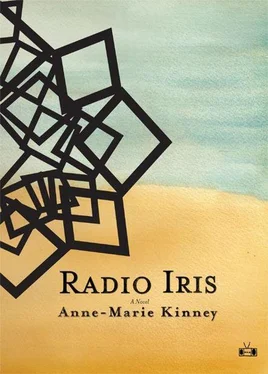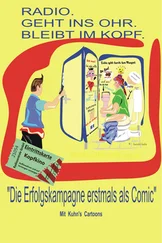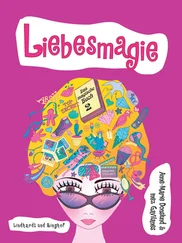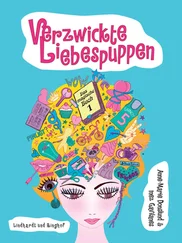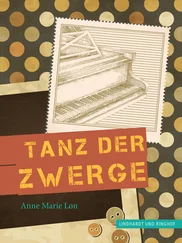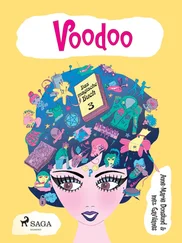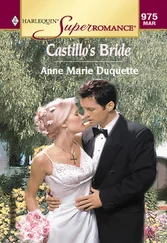“Get Off My Cloud” fades out and into “Open My Eyes” by The Nazz, and she thinks of what she might throw and where it might land.
When she gets to sleep, well after midnight, she sleeps deeply and long. Her dreams are not stories, but images one after another: droplets of condensation swelling on a glass of lemonade. Windmills clustered together on a yellow hill, spinning faster and faster, endlessly. A dry leaf on the sidewalk. A child’s thumb crushing it, grinding back and forth. A line of ants snaking across the bottom of an empty motel swimming pool. A rusted-out car in the middle of the desert. The sun, a runny yolk in the sky, dripping onto red dirt, little by little until there is nothing left of it, the sky extinguished as the last drop hits.
Iris wakes up panting. She gets a handle on it, breathing slowly and deliberately, any vague memory of her dreams escaping little by little with each passing moment. It is Saturday, and she guesses by the depth of sunlight oozing through her window that the day has unfolded itself already without her. She sits up and looks at the clock on her bedside table. It is just after one o’clock. She is groggy, hung over from too much sleep. She drops her feet heavily onto the floor and blinks, letting her eyes adjust to the waking world.
The phone rings and Iris squints around the room. She walks out into the hallway, following the sound, and finds the phone on its charger on the kitchen wall.
“Hello?”
“Happy Birthday, sweetheart. You sound groggy. Were you napping?”
“Oh, Mom, hi. No, I was awake.”
Her mother’s voice is low and soft. It makes no exclamations. Iris is disoriented, realizing all at once that it is in fact her birthday, and that it has been a while, two months at least, since she has spoken to either of her parents.
“Any special plans?”
“Oh, I hadn’t really thought about it. I don’t really know.”
She hears the faint sounds of barking on the other end.
“Marvin,” her mother whispers, “Marvin, honestly.”
“How is Marvin?”
Marvin is the dog that came after Sebastian, an identical German shepherd. Though she knows he is a different dog, Iris, on the few occasions that she has seen Marvin, pretends that he is the same, imagining a long-shared history. She figures that it makes no difference to him what relationship she privately imposes.
“Cranky as ever. I thought we had gotten through the puppy stage, but he is still quite a little brat. That’s right, Marvin,” she murmurs away from the receiver, “I called you a brat.”
Iris smiles.
“So, you’re twenty-five now,” her mother says suddenly. “That’s the age I was when I married your father. I don’t mean that to pressure you— it’s just an observation. Actually, it seems an appallingly young age to me now. Just in general.”
“I don’t feel any pressure.”
“Good. I don’t want you to feel any pressure to do anything, ever.”
“I don’t.”
“That’s good.”
The two stand on opposite ends of the phone line, several hundred miles between them, each standing in the same pose, bent sideways, right elbow resting on kitchen counter, left hand holding receiver.
“Your father says happy birthday. He mouthed it to me. He just stepped out— taking some stuff to the Goodwill.”
“Oh. Tell him thank you.”
“I will.” Her mother pauses. Iris pauses with her.
“How’s the new place?”
“Oh well— ” her mother sighs, “I’ll tell you what… it’s just too big for the two of us. It’s just too much.”
“Really? Isn’t it like, an apartment? Two bedrooms, you said, right?”
“I don’t know… it’s just not… well there’s still so much space to think about. I never know where to go, where to find anything. But don’t worry about it— I promise we’ll tell you when we move again.” She laughs a quick, throaty laugh.
“Oh…” Iris says, remembering the move before this one, when they failed to share their new address with her until they’d been there a month and a half, after the Father’s Day card she’d sent to their old address came back marked return to sender.
“Are you well?” Her mother says abruptly, “would you tell me if you weren’t?”
“Sure, yeah.”
“Okay. Well. I don’t want to keep you any longer. Have a wonderful day, sweetheart.”
“Thank you.”
They hang up without goodbyes.
Iris sets the phone down and considers her kitchen counter. It is the same pattern linoleum as the floor, as though the contractor finished the floor of pale yellow squares, shrugged, and kept going. She scratches at a dark spot on the tile, a stain of indeterminate origin, but it is ingrained.
She thinks back over the past week, tries to remember writing down any dates or glancing at any calendars. The approaching date escaped her notice, as it has before. She doesn’t know if her forgetting is deliberate, or some kind of fateful favor. She knows it takes effort for her mother to call attention to it, as much as she would protest the notion. But she’s a new age today, stamped by a new number. She makes herself a cup of tea and repeats the words, birthday, birthday, birthday in her head while running her fingers lazily along the wall. She says the words silently to the point that they are only sounds, Birthday. Berth dae. Burthdais. The sounds stretch unuttered between her tongue and palate, still numb from last night’s soup. She lifts the tea to her face and lets the steam rise, clearing her sinuses, filling her head with clouds of hot oolong.
Later, while Iris is getting dressed, while the sun begins its downward creep, the phone rings again, her cell this time.
“Happy Birthday!” Mallory says. “We’re going out. Please put on something fantastic and await further instructions.” She hangs up with a menacing cackle before Iris can respond. This is a long-standing tradition between them. Since Mallory pried the date out of her when they were well into their junior year of college, she’s made it her mission to make a big deal out of Iris’s birthday. Iris is touched enough not to argue, though she does her best to let the big deal happen around or adjacent to, rather than about her. She tries to reciprocate in kind on Mallory’s birthday. It’s the only time she ever bakes.
She ambles back to the bedroom and looks in the mirror at the black T-shirt and khaki shorts she has put on. Her wet hair hangs down onto her shoulders, the tips darkening her shirt to a blacker black. She looks at her open closet, taking it all in as a sloppy color spectrum, clothes blending together, new and old, clean and dirty. The radio sings “96 Tears.”
Digging through the back end of her wardrobe, Iris comes across a glittering gold cocktail dress that she bought at a yard sale because it was a dollar. She has never worn it, but a sense of reckless whimsy and the word fantastic in her head lead her to pull it out from the tangle. It smells of something stale, and feels filmy between her fingers. It feels as though she could just pull it apart. It would just stretch and separate like fly paper. She pulls off her clothes and steps into it, fastening it with a hook at the back of her neck. Goosebumps rise all the way down her bare back, a breeze of indeterminate origin.
She stands in front of the mirror and she is not herself. She is someone who wears gold cocktail dresses. Her first impulse is to take it off, but there is a shadow she casts. Against the bedroom wall, with the sun looming pink through the window, she sees her silhouette towering over the room. From where she stands, gold sequins send tiny rays of light through the air. She hypnotizes herself, and for a brief second wonders what makes a self, maybe a self is as mutable as a half breeze through a crack between the window and frame, the waning light, or a passing thought, with no substance to it at all. She blows her hair dry, puts on heels, fills a clutch with lipstick, keys, credit card, cell phone, and a twenty dollar bill folded into thirds. The phone rings again, and she is out the door.
Читать дальше
